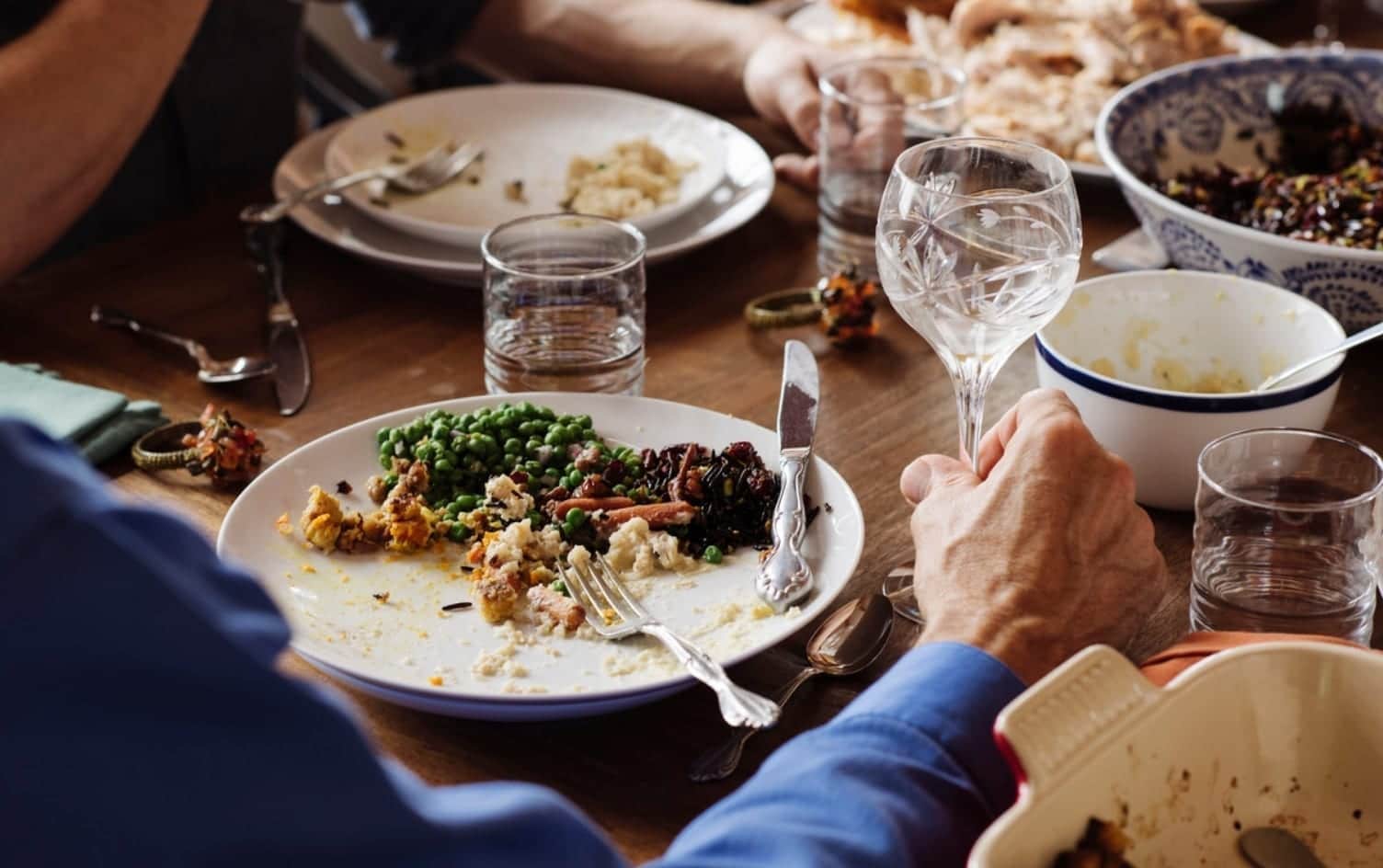Even if you have a well-balanced diet that focuses on high-quality whole grains, lean proteins, healthy fats and plenty of veggies, there are times when your eyes are inevitably bigger than your stomach. Maybe you’re out to dinner or at a holiday event and you find yourself leaving feeling extra stuffed. “Overeating happens to us all, for many different reasons,” says Verona Somarriba, RD. “Foods with high levels of fat and sugar (like pizza, sweets and fried foods), release endorphins into the brain, which are the ‘happy hormones.’ Put simply, eating feels good and can temporarily elevate mood.”
Overeating can also be the result of how we’re feeling, whether that be lonely or stressed. “Many of us use food as a coping mechanism,” says Krista Linares, RD, founder of Nutrition Con Sabor. “A feeling of scarcity may cause people to feel like they have to eat the food now or they won’t get another chance.”
Another trigger: feeling restricted. For example, if you tell yourself “I can’t eat that,” but then eat it anyway, your brain and body still perceive it as deprivation and scarcity, which sets off your body’s survival alarm system according to Madison Surdyke, a recipe developer and intuitive eating-based nutrition coach.
If this all sounds familiar, don’t panic. Here, experts share their top suggestions for what to do after a bout of overeating.
HYDRATE
“Most people experience bloat after an episode of overeating or eating food that is higher in sugar or sodium than they are used to, which causes the body to hold onto more water,” says Linares. While it may sound counterintuitive, hydrating helps flush out the extra sodium and improves digestion, explains Linares. Just make sure to sip on water and avoid any high-calorie beverages.
EXAMINE THE WHY
“Ask yourself whether you were eating for an emotional reason or boredom and try to get to the bottom of that,” suggests therapist Rachelle Strauss. “If you’re continuously coming home frustrated or unfulfilled, then it’s likely time for a shift in either your work or personal life,” she says. “Try something new, whether it’s looking for a new job, working out with a personal trainer, signing up for a group fitness class or finding a therapist.”
GO FOR A WALK
Even a 10-minute walk can help improve digestion and lower blood sugar, according to research published in the Internal Journal of General Medicine.
HIT THE GYM
No, not because you “have” to or because of any lingering guilt. Rather, the extra calories you’ve consumed can really help improve your athletic performance, says Somarriba. “Go for a longer run on the treadmill or lift a little heavier the next day,” she suggests. “You’ve got extra stored energy in the form of glycogen and fat.”
TRY EATING MORE FREQUENTLY
Overindulging often happens when we wait too long to consume food, says Somarriba. If, for example, you know you will go to your favorite dim sum restaurant where you tend to overdo it on soup dumplings, have a small meal or snack 1–2 hours before you go. “Your stomach will have less space, and the hormones typically released when you are very hungry will be subdued, which results in less food intake later.”
AVOID EXTREME MEASURES
These include things like exercising as a way of purging, beginning a detox or cleanse, or writing off whole categories of foods altogether. “These extreme measures are not sustainable and can backfire with more overeating. Instead, commit to a balanced diet for your overall health,” says Lisa Richards, RD.
ACKNOWLEDGE IT, THEN MOVE FORWARD
After getting a papercut, you wouldn’t continue to purposefully scrape your hand — so why is quitting your healthy diet after overindulging any different? “After adhering to a healthy eating plan and making good food choices, it may seem discouraging when you slip-up,” says Bonnie Balk, RD, a health and wellness expert for Maple Holistics. “Instead of freaking out, recognize that you’ve eaten more than you should have, then feel encouraged to jump back on to your healthful eating plan.” Remember: “You are the only one who can control your thoughts, which should empower you to be your own cheerleader and get right back to your healthy habits,” she adds.




